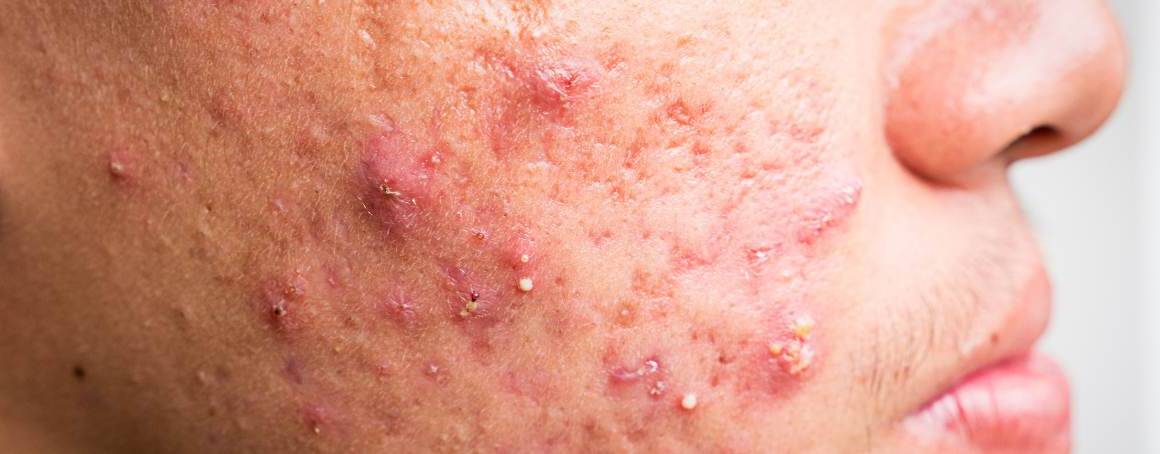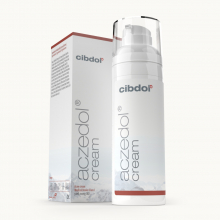What are junk foods for acne?
Published:
Acne is one of the most common skin conditions, affecting millions of people worldwide. While acne has many causes, one potential trigger is eating a diet high in processed and junk foods. If you struggle with breakouts, take a closer look at your diet and limit junk foods that can negatively impact acne.
Contents:
- How Does Diet Affect Acne?
- Top Junk Foods to Avoid for Acne-Prone Skin
- The Best Diet for Clear Skin
- Acne-Fighting Nutrients to Focus On
- Healthy Swaps for Acne-Friendly Eating
- Lifestyle Changes That Support Clear Skin
- Summary
- What foods should I eat to help clear up acne?
- Are certain foods more likely to cause acne breakouts?
- How quickly could my diet improve my acne?
- Is drinking water important for preventing acne?
- Can certain supplements help fight acne?
- Does stress cause acne breakouts?
- How does sleep affect acne?
- Is acne affected by gut health and digestion?
- Can certain medications or supplements cause acne?
- When should I see a dermatologist about my acne?

How Does Diet Affect Acne?
Your diet affects all aspects of your health, including the health of your skin. Eating plenty of nutritious whole foods supports clear skin, while a diet full of junk foods can trigger and worsen acne breakouts. Here's how diet is connected to acne:
- Inflammation - Unhealthy diets high in sugar, refined carbs, and unhealthy fats promote inflammation throughout the body, including inflammation of the skin. This leads to red, painful acne lesions.
- Hormonal fluctuations - Junk foods cause spikes and crashes in blood sugar levels. This stimulates increased production of androgens like testosterone, which causes excess sebum production and clogged pores.
- Gut health - An unhealthy diet disrupts the balance of gut bacteria. This can damage your gut lining and cause systemic inflammation that appears on the skin.
Top Junk Foods to Avoid for Acne-Prone Skin
If you want to clear up acne, reducing or removing these common junk foods from your diet is a smart place to start:
Refined Grains
Refined grains like white bread, bagels, crackers, and cereals are very high on the glycemic index. This means they cause rapid spikes in blood sugar and insulin when eaten. These surges stimulate increased androgen production and sebum production, leading to clogged pores and acne.
Reduce consumption of: white bread, bagels, muffins, cereals, crackers, baked goods made with refined flour.
Sugar-Sweetened Beverages
Sodas, fruit juices, sports drinks, and sweetened coffee and tea drinks are packed with added sugars. Drinking sugary beverages floods your system with glucose and exacerbates hormonal fluctuations that trigger acne breakouts.
Avoid or limit intake of: regular sodas, fruit juices, sweet tea, flavored coffees, sports and energy drinks, vitamin water.
Fast Food
Burgers, fries, chicken nuggets, and other fast food items are very high in inflammatory fats and added sugars. They also often contain dairy, which many acne-prone people have sensitivities to. Eating fast food regularly almost guarantees new zits will pop up.
Reduce how often you eat: burgers, fries, fried chicken, pizza, hot dogs, milkshakes.
Pastries and Sweets
Cookies, cakes, candy, ice cream, and other sweet treats are packed with sugar and refined carbs. They drive up inflammation and stimulate hormonal fluctuations. It’s best to avoid them if you struggle with acne.
Eat less of: cookies, cakes, pie, candy, chocolate, ice cream, donuts.
Salty Snacks
Chips, pretzels, crackers, and other salty snacks are often deep-fried or contain inflammatory oils. They also have added sugar and refined carbs. Munching on these snacks will promote acne rather than clear skin.
Cut back on: potato chips, corn chips, crackers, baked chips, pretzels, flavored snack mixes.
Dairy Products
Dairy, especially milk, contains hormones and growth factors that can stimulate oil production. Many people have sensitivities to whey and casein proteins found in dairy. This triggers inflammation including cystic acne breakouts.
Eat less of: milk, cheese, cream, butter, ice cream, yogurt.
Soy Products
Soy contains plant compounds called isoflavones that mimic estrogen in the body. For some people, eating a lot of soy causes hormonal fluctuations that lead to acne breakouts.
Limit intake of: soy milk, tofu, edamame, soy protein isolate, textured vegetable protein (TVP).
Alcoholic Beverages
Alcohol causes inflammation in the body and dehydrates the skin. It’s also metabolized into acetaldehyde, which can trigger acne breakouts. Excessive drinking worsens acne for many people.
Drink less: beer, wine, liquor, mixed drinks.
Greasy, Fried Foods
French fries, chicken fingers, potato chips, donuts, and other fried foods are cooked in inflammatory oils at high heat. This oxidizes the oils and creates free radicals that damage skin cells. Greasy foods like pizza are also problematic.
Cut back on: french fries, fried chicken, potato chips, donuts, pizza.
The Best Diet for Clear Skin
Avoiding acne-triggering junk foods is a key step. But it’s also important to focus your diet around nutritious whole foods that actively improve your skin health. Here are some of the best foods to eat for clear, acne-free skin:
- Vegetables: Broccoli, spinach, kale, tomatoes, carrots, sweet potatoes, peppers, mushrooms.
- Fruits: Berries, citrus fruits, avocado, apples, pears, kiwifruit.
- Lean proteins: Salmon, turkey, chicken, eggs, beans, nuts.
- Whole grains: Oats, brown rice, quinoa, buckwheat.
- Seeds & nuts: Chia seeds, flaxseeds, walnuts, almonds.
- Healthy fats: Olive oil, avocado oil, coconut oil, ghee.
- Herbs & spices: Turmeric, cinnamon, garlic, ginger.
A whole foods diet centered around vegetables, fruits, lean proteins, nuts/seeds, and healthy fats provides your body with key vitamins, minerals, and antioxidants for optimal skin health. It also stabilizes blood sugar and insulin to minimize acne-causing hormonal fluctuations.
5 Acne-Fighting Nutrients to Focus On
Making sure your diet includes adequate amounts of the following nutrients is key for clear skin:
1. Vitamin A
Vitamin A is crucial for healthy skin cell turnover and regeneration. Sweet potatoes, carrots, spinach, and broccoli are excellent sources.
2. Zinc
Zinc helps control oil production and has anti-inflammatory effects. Oysters, nuts, seeds, legumes, beef, and chicken provide zinc.
3. Vitamin C
Vitamin C is required for collagen production and aids wound healing. Citrus fruits, bell peppers, broccoli, strawberries, and kiwi offer vitamin C.
4. Vitamin E
Vitamin E is a powerful antioxidant that protects skin cells and improves moisture retention. Get it from sunflower seeds, almonds, spinach, avocado, and olive oil.
5. Omega-3s
Omega-3s reduce inflammation and keep cell membranes flexible and moisturized. Fatty fish, walnuts, chia seeds, and flaxseeds provide omega-3 fatty acids.
Focusing on getting enough of these nutrients from whole food sources helps create an internal environment where your skin can thrive and be clear.
Healthy Swaps for Acne-Friendly Eating
Replacing acne-triggering junk foods with skin-clearing nutrition doesn’t mean depriving yourself. Here are some easy food swaps to help clean up your diet:
- Instead of: Sugar-sweetened soda, have sparkling water with lemon or unsweetened iced tea.
- Instead of: Candy or cookies, snack on fresh fruit or a small handful of nuts.
- Instead of: Potato chips or pretzels, bake kale chips or snack on carrots with hummus.
- Instead of: Milk chocolate, have small amounts of dark chocolate with at least 70% cocoa.
- Instead of: White bread or bagels, choose whole grain toast, oatmeal, or a veggie omelet.
- Instead of: Fried fast food, have a salad with grilled chicken or salmon.
- Instead of: Sugary cereal or muffin, eat oatmeal with berries and walnuts for breakfast.
- Instead of: Cow’s milk, opt for unsweetened almond milk or coconut milk.
Making these simple swaps eliminates acne triggers from your diet while still letting you enjoy tasty foods.
Lifestyle Changes That Support Clear Skin
Diet alone won’t banish acne for everyone. A holistic approach that combines acne-fighting nutrition with other healthy habits typically works best. Here are some other ways to support clear skin:
- Exercise regularly - Working out helps reduce stress and regulate hormonal fluctuations. Aim for 30-60 minutes most days.
- Get enough sleep - Aim for 7-9 hours per night. Poor sleep increases inflammation and throws hormones out of balance.
- Manage stress - Try yoga, meditation, deep breathing, and other relaxation techniques to lower stress hormones like cortisol.
- Take targeted supplements - Supplements like zinc, vitamin D, fish oil, and probiotics can enhance the benefits of an acne-fighting diet. But supplements should complement, not replace, a healthy diet.
- Avoid excess sun exposure - While some sun exposure is healthy, too much can damage skin and cause excess sebum production.
Making diet and lifestyle changes to support clear skin takes commitment, but it produces real results. Be patient and stick with an acne-fighting program for at least 6-8 weeks to see noticeable improvements.
Summary
An acne-promoting diet is high in refined carbs, added sugars, unhealthy fats, and inflammatory foods. Limiting junk foods and emphasizing whole, unprocessed foods can significantly improve acne for many people. Focus on getting plenty of acne-fighting nutrients through your diet and make other positive lifestyle changes to enhance the benefits. With consistency, you can go from acne-prone skin to clear, healthy skin through the power of nutrition and healthy habits.
What foods should I eat to help clear up acne?
Focus your diet around vegetables, fruits, lean proteins, nuts/seeds, and healthy fats. Some especially beneficial foods for acne are fatty fish, berries, leafy greens, carrots, broccoli, turmeric, ginger, avocados, chia seeds, and walnuts. These provide key vitamins, minerals, and antioxidants to help reduce inflammation and regulate oil production.
Are certain foods more likely to cause acne breakouts?
Yes. Foods that often trigger acne include those high in refined carbs, added sugars, and unhealthy fats like fast food, pastries, pizza, chips, candy, and soda. Dairy and soy may also cause issues for some people prone to acne.
How quickly could my diet improve my acne?
You should notice some improvements in your acne within a few weeks of cleaning up your diet. However, more severe acne may take 6-12 weeks to fully clear up through diet and lifestyle changes. Be patient and stick with it.
Is drinking water important for preventing acne?
Yes! Drinking enough water is crucial for clear skin. Water flushes out toxins, hydrates skin cells, and prevents constipation to minimize breakouts. Aim for at least 2-3 liters of non-sugary fluids daily.
Can certain supplements help fight acne?
Some supplements shown to improve acne are omega-3 fish oils, zinc, vitamin D, vitamin A/beta carotene, and probiotics. Talk to your dermatologist before taking supplements, especially if you take any medications.
Does stress cause acne breakouts?
Yes. Stress causes your body to produce more cortisol and other hormones that increase oil production and inflammation. Managing stress through exercise, meditation, yoga, and other relaxation techniques can help.
How does sleep affect acne?
Lack of sleep increases inflammation and disrupts hormone regulation in the body. Get 7-9 hours of sleep per night to help control acne breakouts. Poor quality sleep can also exacerbate acne.
Is acne affected by gut health and digestion?
Yes. An unhealthy gut environment can trigger systemic inflammation that shows up as acne. Eating probiotic foods helps improve gut health. Constipation can worsen acne so stay regular through diet and lifestyle.
Can certain medications or supplements cause acne?
Yes. Certain medications like steroids, testosterone, and lithium are linked to acne flares. High doses of B12 or biotin supplements may also cause acne in some people. Talk to your doctor if you notice new breakouts.
When should I see a dermatologist about my acne?
See a dermatologist if you have painful, cystic acne or acne that hasn't improved with over-the-counter products and natural approaches. A dermatologist can provide prescription medications or procedures.















